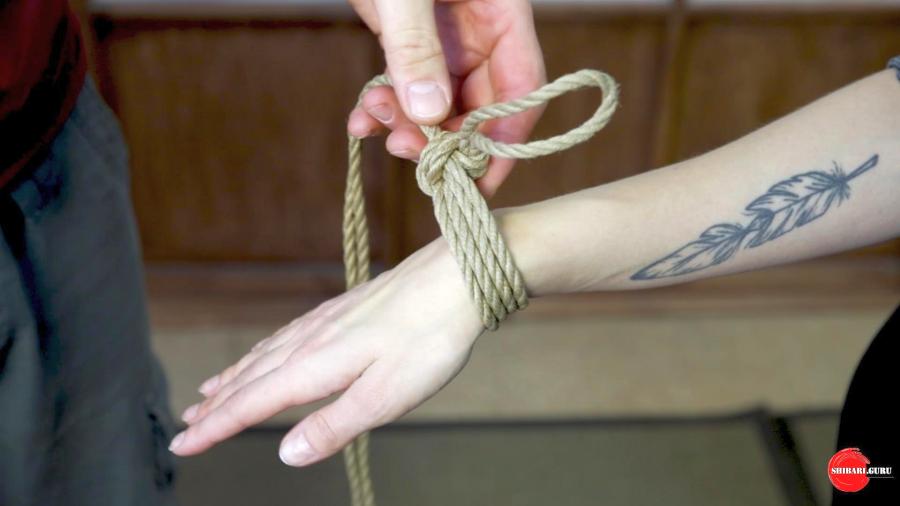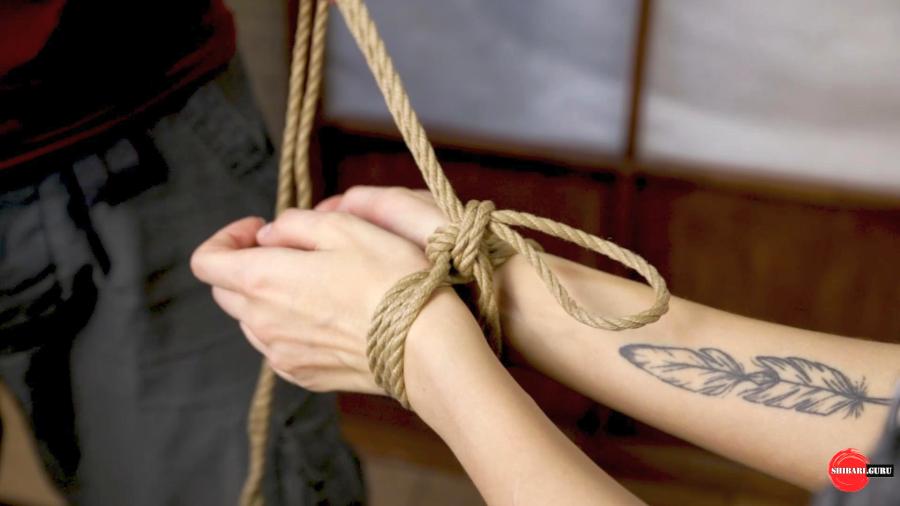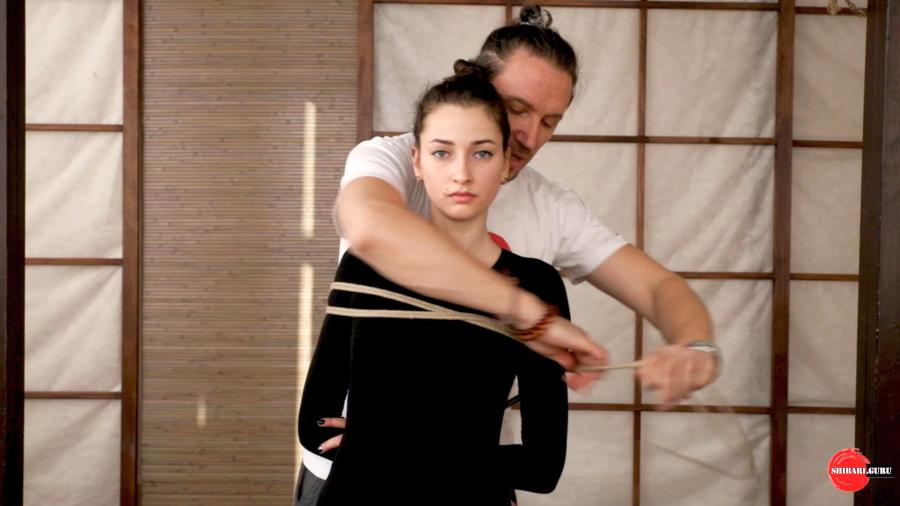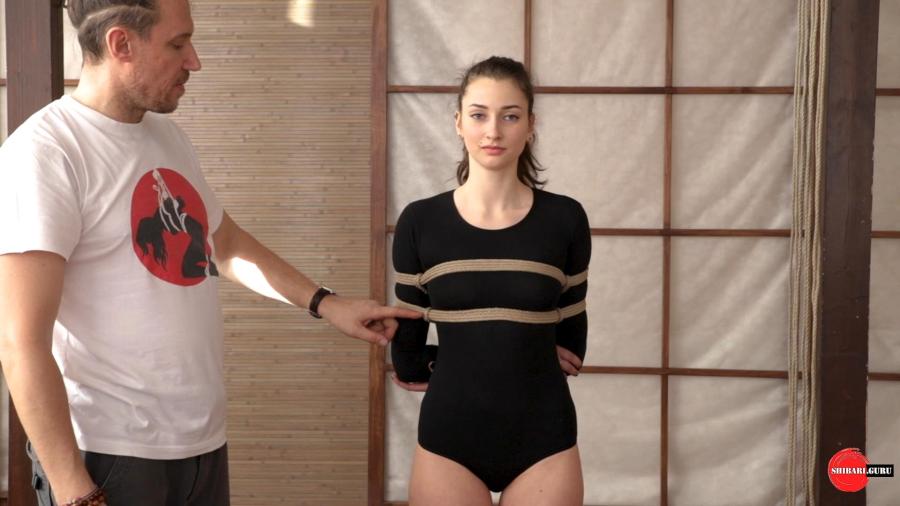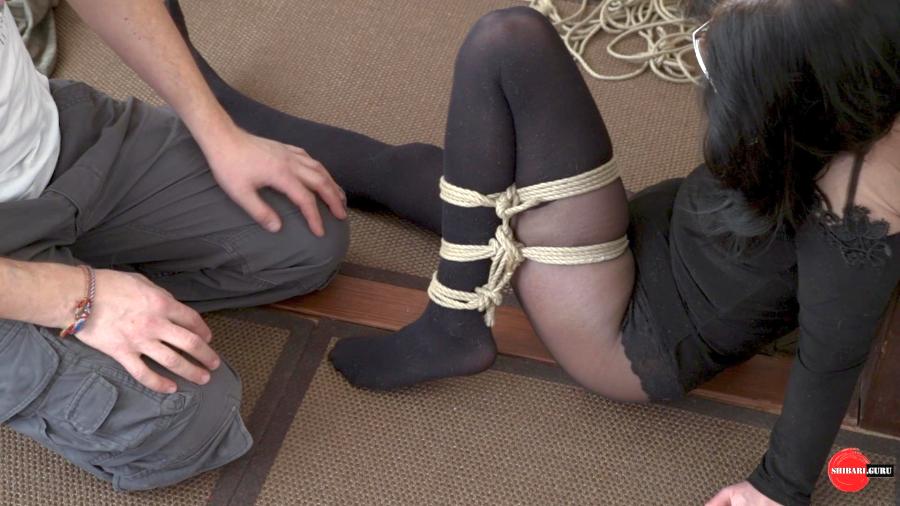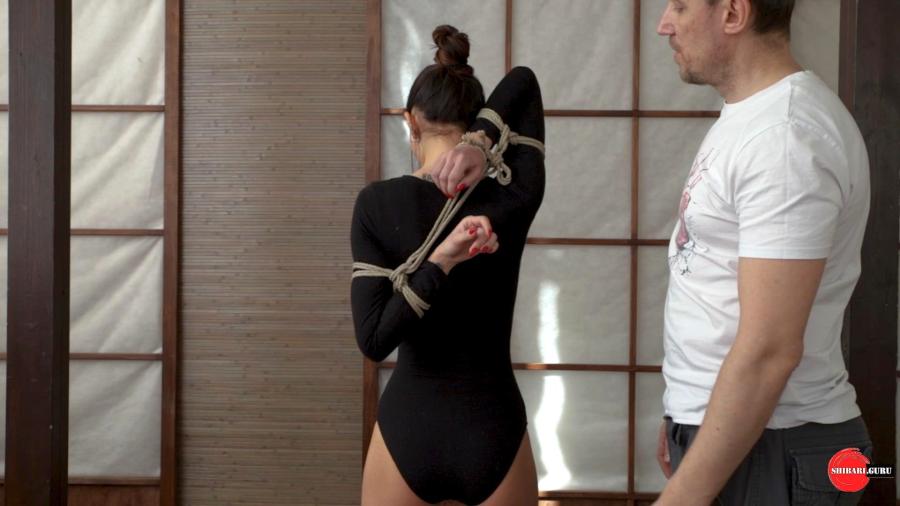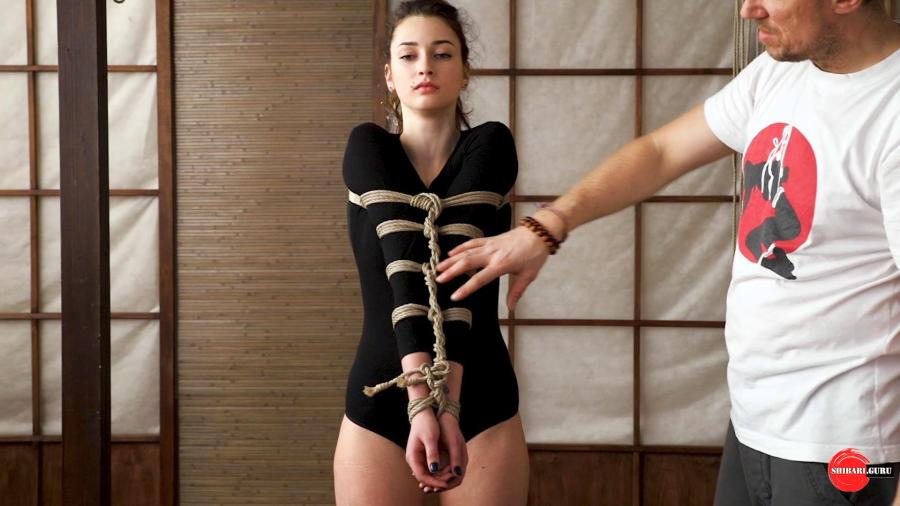Basic shibari pattern single column tie
The basic scheme of shibari.
Single Column tie – the binding of one arm, leg or other extended object. This is the basic shibari harness. In the lesson, it will be disassembled in steps, with comments and variations, with usage tips.

 Русский
Русский